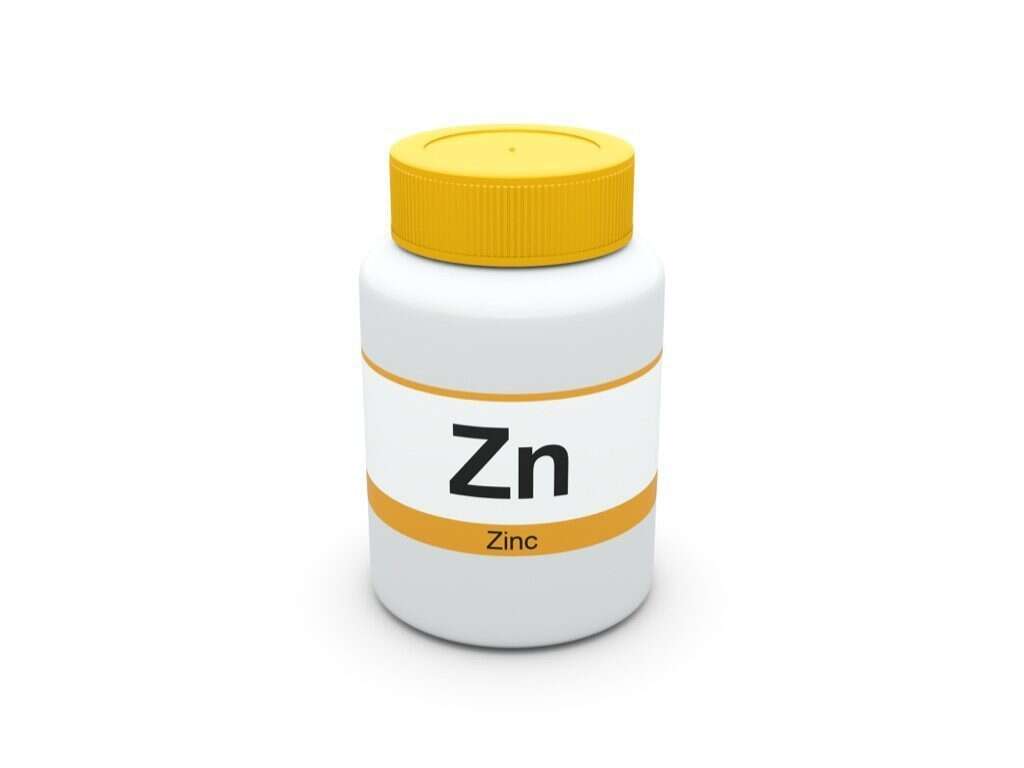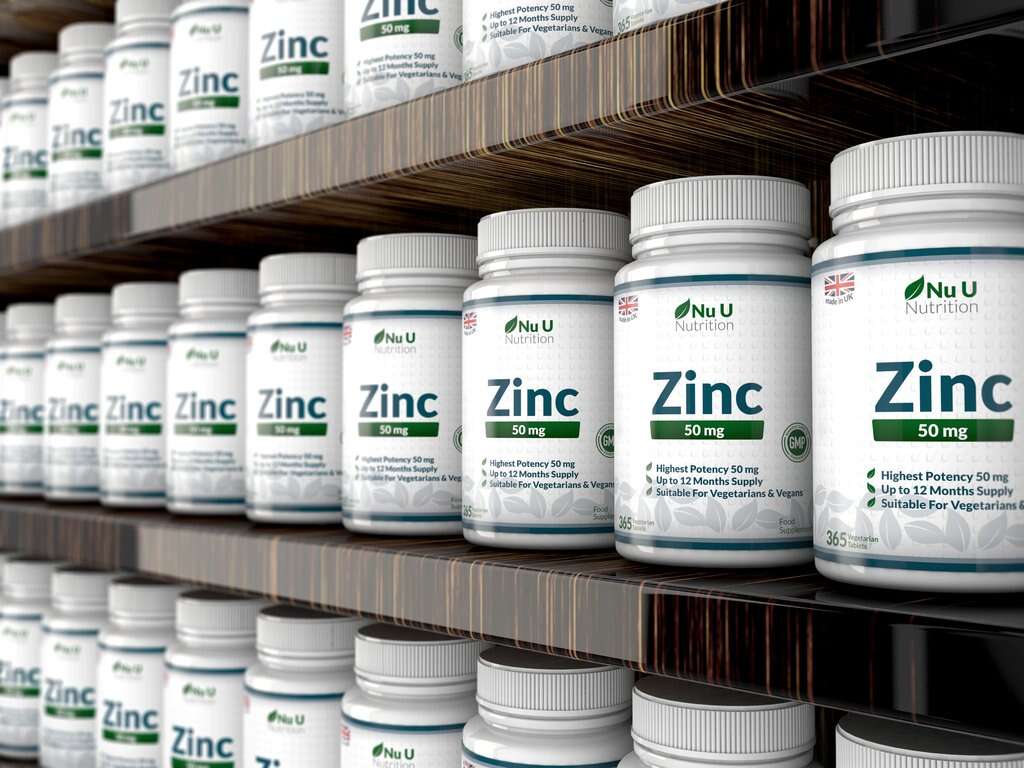10 Zinc Deficiency Symptoms
Zinc deficiency occurs when the amount of zinc in the body is insufficient to meet its functional needs. Zinc is vital for the proper functioning of the skin, brain, central nervous system, immune system, gastrointestinal tract, musculoskeletal system, reproductive system, and more. Zinc deficiency occurs when there is reduced dietary intake, increased loss of zinc, inadequate absorption, or increased utilization.
The most common cause of zinc deficiency is inadequate dietary intake. The recommended dietary allowance is 8mg per day for females and 11mg per day for males. Zinc is a crucial element for the basic functioning of the human body as it plays many roles in numerous biochemical pathways.
The highest concentration of dietary zinc can be found in meat, oysters, beans, and nuts. Zinc deficiency has been estimated to affect as many as 2 billion individuals globally.

Symptom #1: Acne
Acne is a skin condition where the hair follicles may be clogged with oil and dead skin cells, resulting in pimples, whiteheads, blackheads, oily skin, and possible scarring. Acne usually affects those areas of the body that have a high number of oil glands such as the chest, back, and face. Acne is a debilitating condition which can result in reduced self-esteem, depression, and even suicidal ideation.
In 80 percent of the cases, genetics have been thought to be the primary cause. While there is no clear role, recommendations have been made to avoid smoking, increase hygiene, reduce exposure to sunlight, and make dietary changes. Some experts have proposed that topical and oral zinc preparations are effective treatments. Zinc deficiency may manifest as acne.
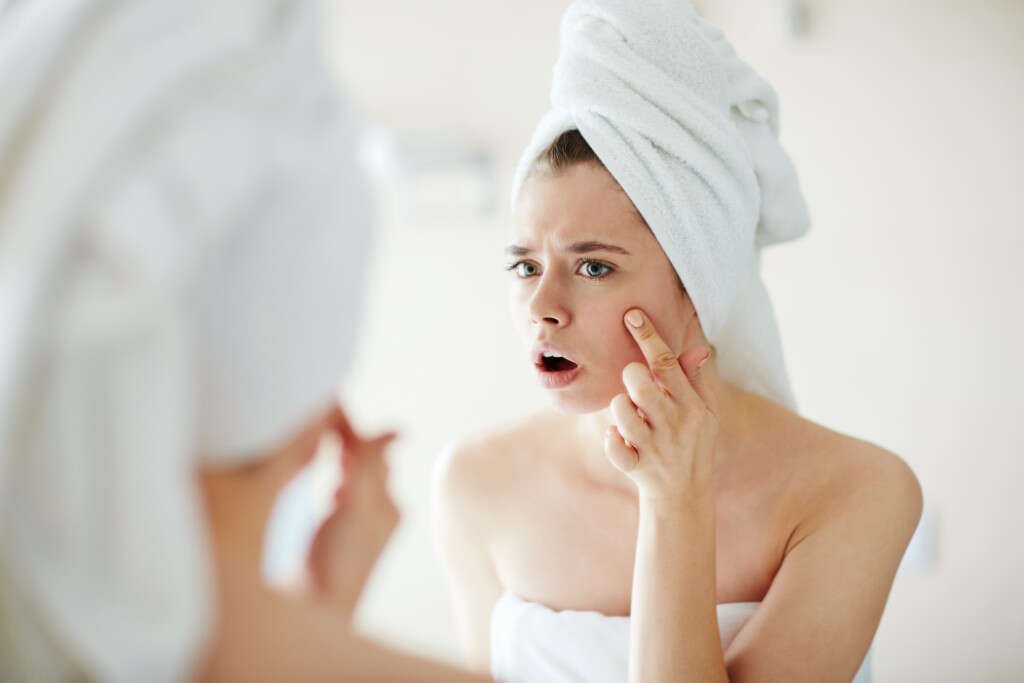
Symptom #2: Eczema
Eczema, or dermatitis, represents a group of conditions characterized by skin inflammation. The skin is often red, itchy, and has a visible rash. There can also be small blisters and thickened or indurated skin in chronic cases.
Eczema can cover an area ranging from a small portion to the entire body. It is often caused by a combination of allergy, irritation, poor venous return, and more. The itchiness can result in excoriations and infections of the skin. This will require treatment with antibiotics, antihistamines, moisturizers, and possibly, steroid creams. Zinc deficiency may manifest as eczema.
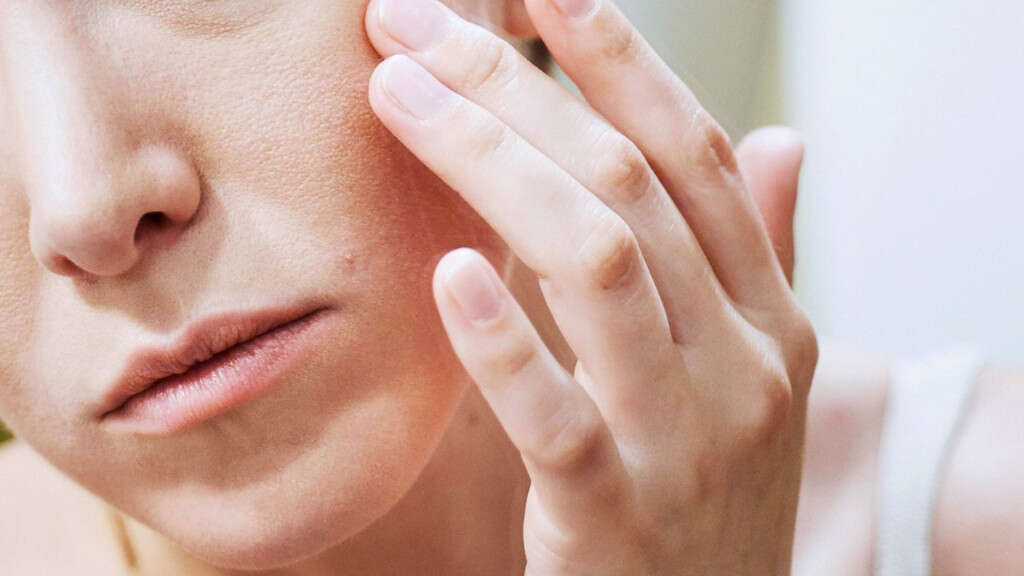
Symptom #3: Xerosis
Xerosis, or xeroderma, is a term that refers to dry skin. Most cases of xerosis can be easily managed with moisturizers or emollients. Xeroderma is most commonly seen on the arms, lower legs, scalp, knuckles, hands, abdominal sides, and thighs. Patients with xerosis often experience peeling of the outer layer of the skin which is also known as scaling.
It is often associated with itching and cracking of the skin. Xerosis occurs more commonly in the winter, because of frequent bathing or washing, systemic illness, side effect of medications, and deficiencies of vitamin A, vitamin D, and zinc.
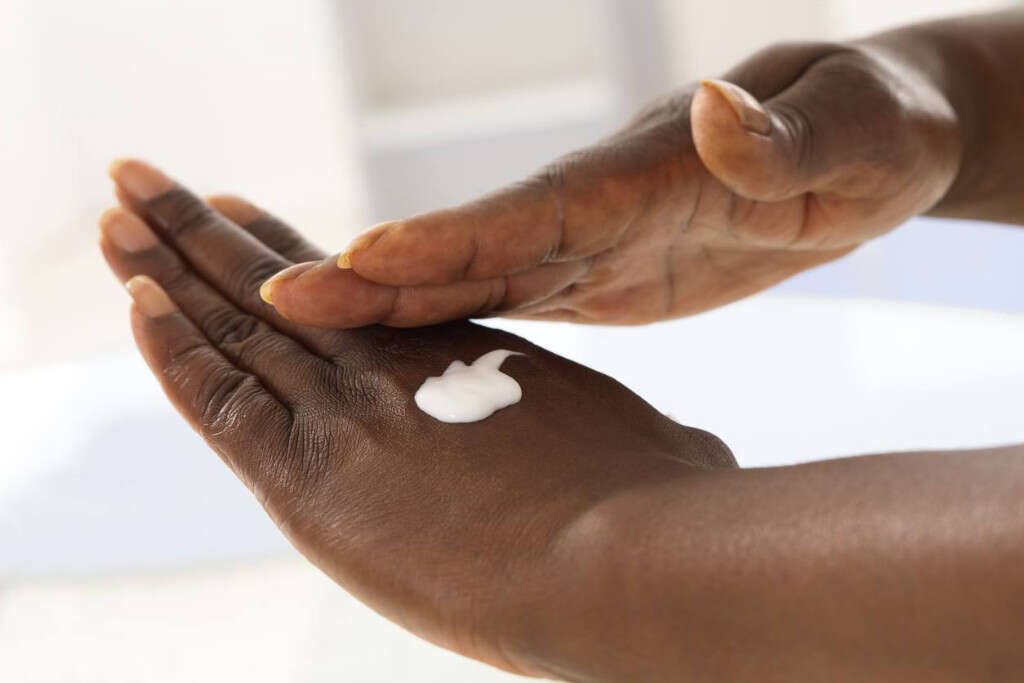
Symptom #4: Alopecia
Alopecia, or hair loss, refers to the loss of hair, and can range from a small area to the entire body. Alopecia can often be seen in individuals with psychological distress. Some of the types of alopecia include female pattern hair loss, male pattern hair loss, alopecia areata, telogen effluvium, and more.
Causes include hormonal imbalances, autoimmune disorders, stressful events (psychologically and/or physically), chemotherapy, and nutritional deficiency (such as zinc and iron).

Symptom #5: Oral Ulceration
Oral ulceration, or a mouth ulcer, is a condition where there is an ulcer on the mucous membrane of the oral cavity. It means that there is a break or discontinuity in the skin or mucous membrane. Since mouth ulcers are common, there are many causes, including local trauma, oral cancer, nutritional deficiencies, and more.
Mouth ulcers can cause pain and discomfort and can negatively impact the individual’s quality of life as patients will tend to avoid spicy and acidic foods. Ulcers can form individually, though multiple ulcers can appear at the same time. Secondary infection may also occur.

Symptom #6: Stomatitis
Stomatitis refers to inflammation of the lips and mouth. The inflammation can occur in the mucous membranes of the lips or mouth regardless of oral ulceration. Common causes of stomatitis include allergy, nutritional deficiencies, infections, radiotherapy, and more.
Some examples of nutritional deficiencies that can lead to stomatitis include deficiencies of iron, zinc, vitamins B2, B3, B6, B9 and B12, and more.
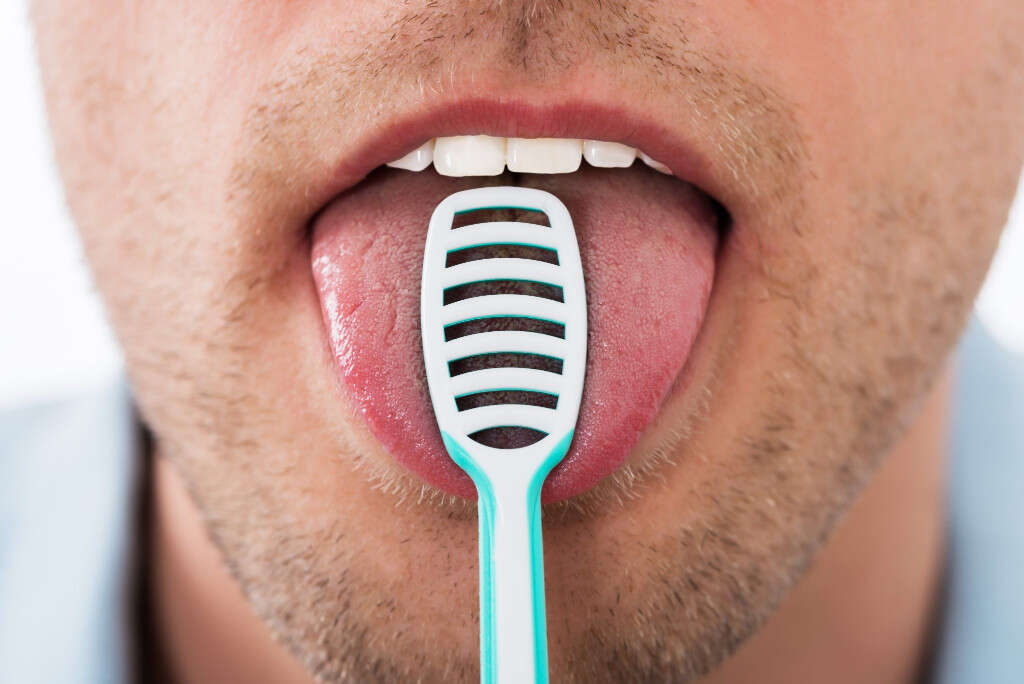
Symptom #7: Night Blindness
Night blindness is a condition where individuals experience difficulty seeing in dim light. It can be a symptom of malnutrition, injury, zinc deficiency, and more.
While night blindness can be a feature of severe zinc deficiency, there are more reports showing it to be due to a combination of both zinc and other nutritional deficiencies.

Symptom #8: Impaired Immune System
Individuals with zinc deficiency have also been observed to have an impaired immune system. This can lead to gastrointestinal, respiratory, and other infections, such as pneumonia, because the levels of cytokines in the body are affected by zinc deficiency.
Zinc supplementation has been shown to produce a dose-dependent response in the production of cytokines. This can be observed especially during inflammation, when there is increased demand for zinc from the cells.

Symptom #9: Diarrhea
Diarrhea refers to the condition where there are at least three or more loose bowel movements per day. Diarrhea can last several days and results in dehydration. Patients with dehydration often experience loss of skin color, tachycardia, decreased urine output, decreased responsiveness, and more.
Diarrhea is most commonly seen among those with infection in the intestines caused by pathogens such as viruses, bacteria, or parasites. Patients with zinc deficiency have an increased incidence and severity of diarrhea.

Symptom #10: Behavioral Abnormalities
Patients with zinc deficiency may experience abnormal cognitive functions that can be associated with behavioral abnormalities. Examples include lethargy, depression, irritability, anhedonia, and more. Zinc supplementation to these patients can result in a dramatic and rapid mood improvement, with patients often presenting happier.
Zinc supplementation has also been observed to help improve depression and symptoms of attention deficit hyperactive disorder.










